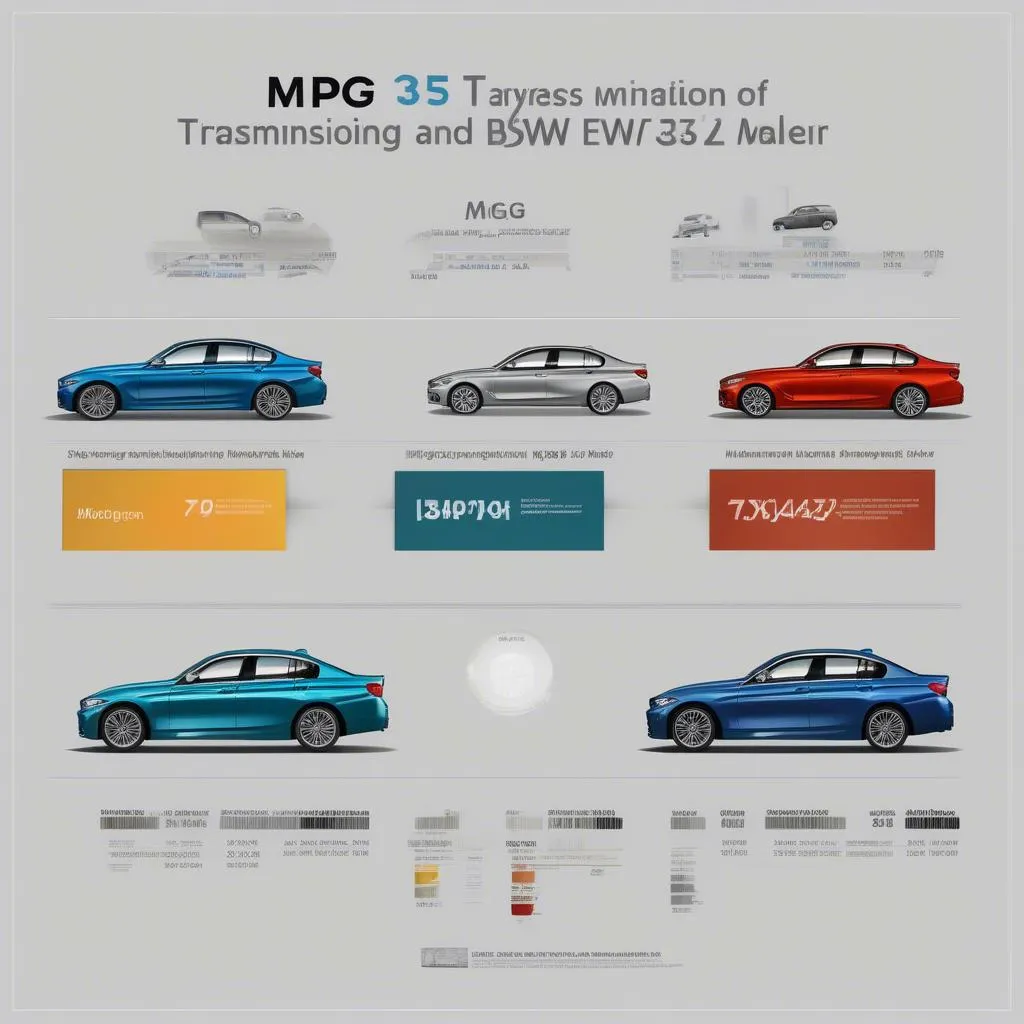BMW 3 MPG: Fuel Efficiency & Factors Affecting It
You’re looking to buy a BMW 3 Series, but you’re concerned about its fuel economy, right? You’re not alone. Many car buyers are curious about the real-world fuel efficiency of the BMW 3 Series, especially the MPG (miles per gallon) figures. Let’s dive into the world of BMW 3 Series fuel economy and explore what factors influence its MPG.
Understanding BMW 3 MPG
What Does MPG Mean?
MPG stands for “miles per gallon,” and it’s a standard measure of fuel efficiency for vehicles. It tells you how many miles you can drive on one gallon of gasoline. A higher MPG means you can travel further on the same amount of fuel, which translates to lower fuel costs and a smaller carbon footprint.
Why is Fuel Efficiency Important?
Fuel efficiency is crucial for several reasons:
- Cost Savings: A more efficient car requires less fuel, which directly impacts your wallet.
- Environmental Impact: Lower fuel consumption means fewer greenhouse gas emissions, benefiting the environment.
- Driving Range: Greater fuel efficiency allows you to cover more distance before needing to refuel.
BMW 3 Series MPG: What to Expect
The BMW 3 Series offers a range of powertrains, and each model’s MPG can vary significantly. Here are some key factors affecting the fuel economy of the BMW 3 Series:
- Engine Size and Type: Smaller engines generally offer better fuel efficiency than larger ones. The BMW 3 Series comes with both gasoline and diesel engines, with diesel options typically delivering higher MPG.
- Transmission: Automatic transmissions are usually less fuel-efficient than manual transmissions, but modern automatics are becoming more efficient.
- Drivetrain: Rear-wheel drive models are generally more fuel-efficient than all-wheel drive models.
- Driving Habits: Aggressive driving and frequent acceleration reduce MPG. Smooth acceleration and maintaining a constant speed can significantly improve fuel economy.
- Vehicle Weight: A heavier car requires more power to move, resulting in lower fuel efficiency.
 Fuel Efficiency Comparison of Different BMW 3 Series Models
Fuel Efficiency Comparison of Different BMW 3 Series Models
Typical BMW 3 Series MPG Figures:
- BMW 320i: Around 28-34 MPG
- BMW 330i: Around 25-31 MPG
- BMW 335i: Around 23-29 MPG
- BMW 320d: Around 35-42 MPG
- BMW 330d: Around 32-38 MPG
Tips to Enhance BMW 3 MPG
- Driving Habits:
- Smooth Acceleration: Avoid hard acceleration and braking, as this consumes more fuel.
- Maintain Steady Speed: Cruising at a constant speed, especially on highways, will improve MPG.
- Anticipate Traffic: Slow down gradually when approaching traffic lights or stop signs to avoid sudden braking.
- Vehicle Maintenance:
- Regular Maintenance: Ensure your BMW 3 Series is in good working condition by adhering to recommended maintenance schedules.
- Proper Tire Inflation: Under-inflated tires can increase rolling resistance, leading to lower MPG.
- Clean Air Filter: A clogged air filter can restrict airflow to the engine, negatively impacting fuel efficiency.
- Other Factors:
- Avoid Excessive Weight: Reduce unnecessary weight in your car to minimize fuel consumption.
- Use Cruise Control: Cruise control helps maintain a constant speed, improving fuel efficiency.
Frequently Asked Questions about BMW 3 MPG
-
Q: What is the best BMW 3 Series for fuel economy?
-
A: The most fuel-efficient BMW 3 Series models are typically those with smaller engines and diesel options. For example, the BMW 320d diesel offers excellent fuel efficiency.
-
Q: Can I improve my BMW 3 Series MPG?
-
A: Yes, there are several ways to improve your BMW 3 Series fuel economy. Adopting fuel-efficient driving habits, performing regular maintenance, and avoiding unnecessary weight in the car can all make a difference.
-
Q: How can I monitor my BMW 3 Series MPG?
-
A: Most modern BMW 3 Series models have a fuel consumption display that shows your current and average MPG. You can also use a trip computer or a mobile app to track your fuel efficiency.
-
Q: Does a BMW 3 Series MPG vary significantly depending on the model year?
-
A: Yes, fuel efficiency can vary between model years due to changes in engines, transmissions, and other factors. For example, newer models generally offer improved fuel economy compared to older ones.
Conclusion
The BMW 3 Series offers a balance of performance and fuel efficiency. Understanding the factors that affect MPG can help you make informed decisions about which model is best suited for your needs. By adopting fuel-efficient driving habits and performing regular maintenance, you can maximize the fuel economy of your BMW 3 Series and reduce your overall fuel costs.
If you need further assistance with diagnosing your BMW 3 Series fuel consumption issues, please don’t hesitate to contact us via WhatsApp: +84767531508. We have a team of expert technicians available 24/7 to assist you.
